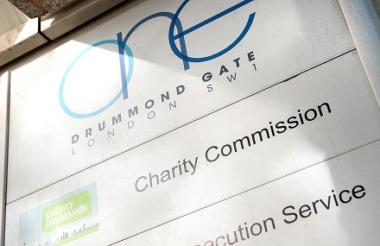The Charity Commission has published new litigation guidance for trustees, including a 16-point checklist with key actions for trustees to take before considering legal action.
The guidance, CC38, outlines “important principles” for trustees to follow before considering litigation, including for trustees to “consider whether their intended actions are proportionate of the circumstances” and to “assess the economic prospects of success or failure and the impact on the charity”.
“Trustees have a general duty to act in the best interests of their charity,” the guidance says. “The decision whether or not to initiate or defend a legal action must only be made in the best interests of the charity and be balanced against the risks and consequences that any legal action could bring.”
The 16-point checklist published alongside the guidance calls for charities to “explore all reasonable options to resolve the issue”; take specialist legal advice to assess the costs, risks, impact and potential value of a claim; explore insurance options and consider conflicts of interest as well as the impact on donors and beneficiaries. It also calls for trustees to assess whether to involve the Commission with the case.
Alternative options to litigation are also suggested, including that trustees should negotiate, either directly between both parties or with the help of an independent mediator.
Kenneth Dibble, chief legal advisor at the Charity Commission said the guidance aims to “help trustee bodies reach a justified decision on litigation and crucially, to manage risk effectively by assessing the challenges and costs their charity might face and deciding how to deal with them”.
“We encourage any trustees thinking of engaging in litigation to read our new guidance, apply the principles set out in our existing guidance on decision making, and to contact us as a matter of priority if they require our protection from adverse costs or authorisation to proceed.”
The guidance applies to any legal action that a charity might have to take or defend itself against, but not to criminal cases or challenges to decisions made by the Charity Commission, the regulator said.
Checklist for trustees
- Explore all reasonable options open to the charity to resolve the issue, such as dispute resolution or agreeing a legal compromise - this may include taking professional advice to ensure that all other options have been exhausted.
- Take and consider specialist legal advice (and possibly the advice of other suitably qualified expert advisers, for example an accountant or a chartered surveyor) on the following matters:
- the relative strengths of the charity’s case and of any defence or counterclaim which may be brought against the charity by the other party involved
- the likely costs
- the risks surrounding recovering the charity’s costs
- the risk of having to pay the costs of the other party
- the value or potential value of any claim
- Consider whether the legal action in question constitutes charity proceedings and whether the trustees will need to apply to the commission for consent.
- Consider the impact on the charity and its beneficiaries of spending funds on legal proceedings which will therefore not be available for other work carried out by the charity.
- Assess whether the charity has sufficient funds to meet the potential costs involved - both parties involved in legal action are likely to incur costs regardless of whether they win or lose, although the costs are likely to be higher for the losing party.
- Explore any insurance options to protect themselves and help manage the cost risks.
- Consider the impact on the charity’s donors or funders if money is spent on legal action - also consider the impact on the charity if it decides not to defend its position or pursue a legitimate claim.
- Consider what the impact will be on the charity of devoting management resources, energy and time to the legal action plan for the impact on the charity’s reputation of any publicity the legal action or inaction may attract.
- Identify if any of the trustees have a conflict of interest (or loyalty) in making the decision; in some circumstances it may be sufficient for the conflicted trustees not to be part of the decision making process on a particular issue - in others, information about the legal action will not be shared with the conflicted trustee.
- Review regularly the following issues:
- is taking or continuing with the legal action in the charity’s best interests and will the other party be able to comply with the terms of any judgment obtained?
- will the other party be able to pay the amounts awarded both in terms of any judgment and legal costs and expenses if they lose the case - the court usually requires the loser to pay the winner’s costs - however, this does not mean that they will have the money to pay or that the amount of costs awarded by the court will be the full amount of costs that the charity has to pay









